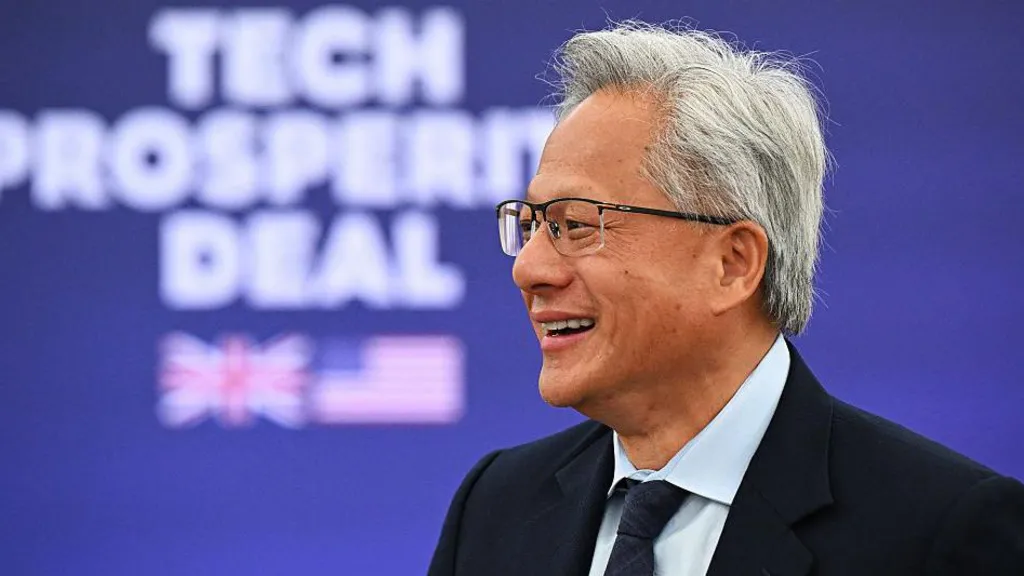During US President Donald Trump’s state visit to Britain, the pomp at Windsor Castle was matched by a more practical show in London’s Camden Town Hall: a slick video celebrating the history of UK science and innovation.
It was voiced not by a British statesman, but by Nvidia’s Jensen Huang — the Silicon Valley magnate whose company, valued at $4tn (£2.9tn), is spearheading a wave of American tech investment in the UK.
Billions Flowing Across the Atlantic
Nvidia this week pledged an additional £2bn for British ventures, with Huang declaring: “This is the week I declare the UK will be an AI superpower.” Microsoft followed with a £22bn expansion of its Stargate AI infrastructure plan, while Google unveiled a £5bn investment and a new Essex data centre, alongside support for London’s DeepMind.
Together, the trio signalled a “tech bromance” — a rare transatlantic consensus, warmly embraced by Prime Minister Sir Keir Starmer’s government.
Howard Lutnick, Trump’s commerce secretary, told the UK’s start-up community: “We are America first, but we are not America only. We want you to win too.”
Optimism vs. Reality
For the UK government, this is an early win in its strategy to attract global investment. Yet it remains unclear whether such capital will genuinely transform living standards or the broader economy.
While the enthusiasm of US tech firms was striking, it contrasted with the gloom among many Britons about the state of their economy. Google’s Ruth Porat praised the UK’s “profound opportunity” but warned there was still “work to do.”
Former Deputy PM and Meta executive Sir Nick Clegg was more blunt, accusing Britain of clinging to “crumbs from the Silicon Valley table” and warning that talent and ideas continue to flow out of the country.
The Strategic Stakes
The Tech Prosperity Deal signed this week signalled closer alignment with US policy, particularly on AI, where Trump has scrapped Biden-era safety initiatives in favour of a more permissive approach. The UK has mirrored that shift.
The investments also carry geopolitical weight: the UK risks becoming both a testbed and a dependency for US tech, at a moment when the West sees AI as a key front in its rivalry with China.
Huang himself downplayed any zero-sum competition: “President Trump wants to win and so does President Xi. It’s possible they both can.”
Lessons from the Past
Britain’s history with Arm Holdings and DeepMind shows how UK innovation often ends up under foreign ownership. Huang once tried to buy Arm outright before regulators blocked the deal. DeepMind’s sale to Google in 2014 is now viewed both as a loss and as the foundation of the UK’s current attractiveness to Silicon Valley.
With regulators under pressure to take a more “pro-growth” stance — symbolised by the firing of the Competition and Markets Authority chair in January — Britain appears determined to avoid scaring off future suitors.
The Risks Ahead
The tech boom offers prestige and optimism, but also risks: AI adoption is already displacing jobs in law, accounting, and clerical work, well before it creates mass new employment. As US cities such as San Francisco show, tech-driven prosperity can also widen inequality.
For now, the UK has become a magnet for US investment, betting that the Silicon Valley glow will spread to the wider economy. Whether this “bromance” truly delivers transformation — or merely deepens dependency — will define Britain’s economic trajectory for decades to come.











More Stories
AI Boom Powers Nvidia’s Growth Despite Rising US-China Tensions
SpaceX Achieves Successful Starship Launch in Dramatic Comeback
South Korea imposes a ban on new downloads of DeepSeek AI